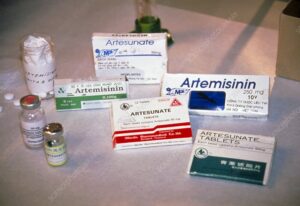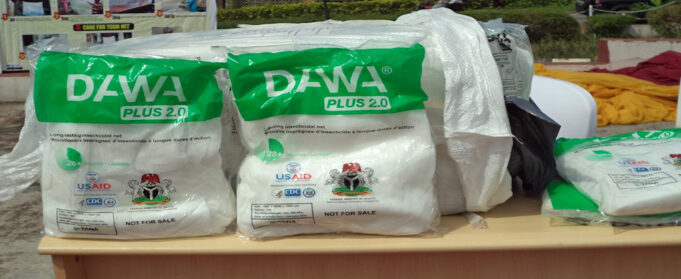The Federal Ministry of Health (FMoH) is seeking $360 million loan for the purchase of Long-Lasting Insecticidal Nets (LLINs) and malaria drugs, and for surveillance activities for its malaria programme.
This is contrary to the $200 million that was disclosed during the budget presentation by the Permanent Secretary in the ministry, Mahmuda Mamman.
The Star reports authoritatively that two key donors in the country’s malaria programme – the Global Fund (GF) and the Presidential Malaria Initiative (PMI) – have tasked the Federal Government of Nigeria to find resources to support 13 states, which do not have any form of malaria support in the country.
Out of the 36 states and FCT, the Global Fund supports 13 states (Adamawa, Delta, Gombe, Jigawa, Kaduna, Kano, Katsina, Kwara, Niger, Ogun, Osun, Taraba and Yobe), while Presidential Malaria Initiative is supporting 11 states (Akwa Ibom, Bauchi, Benue, Cross River, Ebonyi, Kebbi, Nasarawa, Oyo, Plateau, Sokoto and Zamfara).
The remaining 13 states have not been receiving malaria programme interventions since 2015 and the donors refer to them as the ‘orphan states.’
To ensure continuity of the grant support for the other 24 states, the donors mandated Nigeria to provide funding for the ‘orphan states,’ which are Abia, Anambra, Bayelsa, Borno, Ekiti, Enugu, Edo, Imo, Lagos, Kogi, Rivers, Taraba and FCT.
Based on the condition by these two major donors, Nigeria is now seeking a loan of $200 million from World Bank, $100 million from Africa Development Bank (AfDB) and $60 million from Islamic Development Bank (IDP) in order to get funding for the rest 24 states.
The loan will finance LLINs, malaria drugs of Sulfadoxine-Pyrimethamine (SP), Artemisinin-based combination therapy (ACT), Surveillance and other activities in these orphan states, which are what other malaria partners are doing in the 24 states.

The unfortunate situation is that all these commodities will not be purchased in Nigeria as there is no company that is WHO prequalified for the manufacturing of LLINs where most of the money is being spent.
The companies producing these nets are Vestergaard (Switzerland), VKA Polymers (India), Tianjin Yorkool International (China), Sumitomo Chemical (Japan), Shobikaa Impex Private (India), Net Health (A to Z Textile Mills) (Tanzania), NRS Moon Netting (China), Mainpol (Germany), Life Ideas Biological Technology (China), Fujian Yamei Industry (China), Disease Control Technologies (USA), and BASF (Germany).
Presently, the World Health Organisation (WHO) lists 20 different kinds of prequalified LLINs from 12 different manufacturers with no one from Nigeria. And from the over 120 pharmaceutical companies in Nigeria, only four firms meet the WHO Good Manufacturing Practice (GMP), a mandatory certification to be able to market medicines globally. These are CHI Pharmaceuticals, Swipha, May &Baker and Evans.
The Nigerian pharmaceutical companies are not even considered by these key donors for the procurement of anti-malaria drugs.
With the over 100 million LLINs distributed in Nigeria, the usage in the country is very poor.
UNICEF, in its 2020 report, states that “despite the progress made to date, only half of the people at risk of malaria in Africa are sleeping under an LLIN. In 2017, The Global Fund to Fight AIDS, Tuberculosis and Malaria (the Global Fund) estimated that 57 per cent of the populations were protected by a mosquito net. Even though this represents a significant increase from 2010 estimates of 29 per cent coverage, it still leaves half of the population at risk uncovered.”
The Senate had, on Tuesday October 26, condemned the proposal by the Federal Ministry of Health to borrow $200 million under the malaria programme to buy mosquito nets in the 2022 budget.
- Nigeria’s food production hampered by flood, pollution – Oborevwori - October 16, 2023
- Oborevwori lauds judiciary as judges visit gov - October 10, 2023
- Itsekiri women block DESOPADEC office, protest over PIA - September 7, 2023










